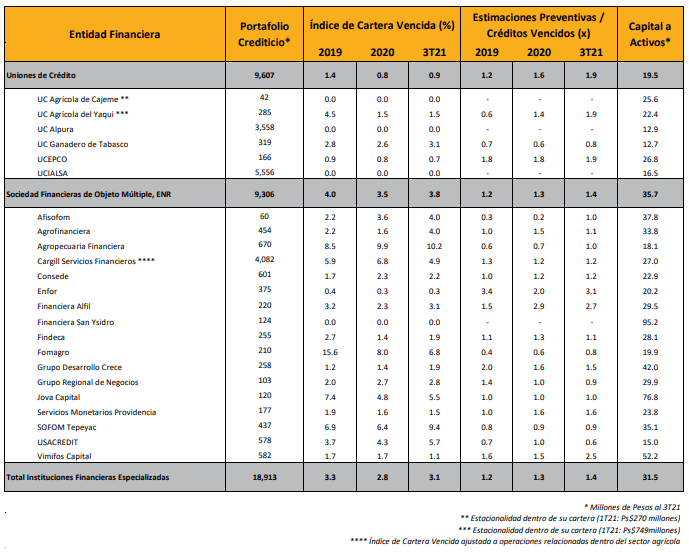The securities rating agency PCR Verum highlighted that the Non-Banking Financial Institutions (NBFIs) continue to take advantage of an economic environment in the recovery phase, with a resilient agricultural sector.
PCR Verum was established by a group of professionals with extensive experience in the financial markets of Mexico.
According to the company itself, its strength lies in the different experiences of its partners in the Mexican financial market, in the field of securities rating and credit risk analysis in the banking, stock market and business sectors.
In the opinion of PCR Verum, the agricultural and agro-industrial sector, being a primary activity and basic consumption, contained the impact of the coronavirus pandemic in a «very reasonable» way compared to other non-essential economic sectors.

The credit portfolio of the NBFIs focused on financing agricultural activities remains healthy and PCR Verum maintains an expectation of stability for this sector during 2022.
Within the qualified sector, the loans that are still in some support program represented less than 5% of its total portfolio, which compares favorably with those of the Mexican banking system that were around ~20 percent.
Agricultural financing
The companies rated by PCR Verum are: Cargill Servicios Financieros, Vimifos Capital, UCIALSA, Agrofinanciera, SOFOM Tepeyac, UC Agrícola de Cajeme, UC Alpura, Consede, Financiera San Ysidro, UC Agrícola del Yaquí, Findeca, Grupo Desarrollo Crece, Serv. Monetarios Providencia, UCEPCO, Agropecuaria Financiera, Enfor, Grupo Regional de Negocios, Jova Capital, Usacredit, Financiera Alfil, Afisofom, Fomagro, and UC Ganadero de Tabasco.
In general, the company considers that the resilience of these NBFIs is supported by two reasons: they entered the coronavirus crisis with low non-performing portfolio levels that allowed it to have ample loss-absorbing capacity given their capital adequacy; and the pace of credit origination was maintained, mainly with its usual borrowers, thus managing to maintain its main asset quality indicators at levels similar to those observed historically.
Likewise, the company does not foresee important changes in the funding structure of these NBFIs and expects continuity in the resources coming from FIRA (Trusts Instituted in Relation to Agriculture).
![]()

